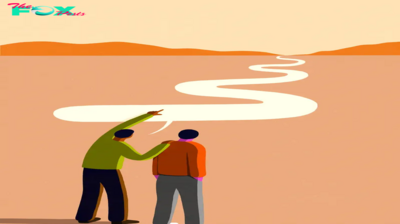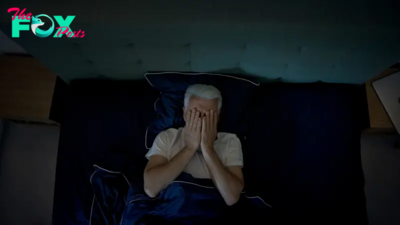Health
The Isolation of Having Long COVID as Society Moves On
When Karyn Bishof started experiencing Long COVID, there wasn’t a name yet for the symptoms that lingered after her infection in March 2020.
“I had these continued, prolonged symptoms that I wasn't hearing about initially,” says Bishof, who founded a group called the COVID-19 Longhauler Advocacy Project to help advocate for those suffering with Long COVID. She experienced extreme fatigue, nausea, and insomnia, among other things, but doctors kept testing her for COVID-19, or telling her her symptoms were psychosomatic.
March 11 marks four years since COVID-19 was declared a pandemic. But while much of society has moved on from masking, quarantining, and isolating, some still feel the effects of the pandemic every day. Bishof, 34, who continues to experience Long COVID, says that many patients she speaks to still find it difficult to get people and doctors to take their symptoms seriously, or feel concern at being the only person masked in a hospital waiting room. “There’s no mitigation left,” Bishof says. “It’s hurry up and move on.” “
Having the government guidelines for prevention largely rolled back has only made the experience for Long COVID patients and immunocompromised people in 2024 more isolating.
Cynthia Adinig, 38, has been dealing with symptoms of Long COVID since 2020, and says that, as someone who is immunocompromised, trying to avoid reinfection in a society in which most people have stopped masking has drastically impacted all aspects of her life. “It shrinks everything down so much,” she says. “My world gets smaller and smaller outside of these doors.”
Adinig says it’s a constant struggle to create a sense of normalcy for her son, who contracted COVID when he was 4 and also deals with mild Long COVID symptoms. Now 8, he’s an avid chess player, but comPeting in tournaments has become tough now that masking is no longer a requirement. “Places don't understand how much not masking excludes those of us who are immunocompromised,” Adinig says. “I'm really forced to say no, you can't pursue your dreams.”
Read More: Long COVID Doesn’t Always Look Like You Think It Does
Many public Health measures that were standard protocol during peak waves have fallen by the wayside. Nationwide free at-home COVID-19 testing ended last May. The U.S. Centers for Disease Control and Prevention (CDC) recently ended the mandatory 5-day isolation period for people who are infected. As testing for and tracking the virus becomes less common, many people might not know that the sickness they’re experiencing is COVID-19—or that lingering symptoms are Long COVID.
Liza Fisher, 39, says that the way accommodations, like work from home policies and at-home testing kits, were quickly implemented during the peak pandemic years showed that society could adjust to make itself more inclusive towards people with disabilities. But now, she just feels left behind. “It makes you turn to isolation or recognize that you are now of lesser value in society,” she says.
As of January 2024, 17% of American adults have reported experiencing symptoms of Long COVID according to data from the National Center for Health Statistics—up from an estimated 14% in fall of 2023. Almost 3%, or 7 million, U.S. adults are immunocompromised in some way—and some people who are immunocompromised don’t get sufficient protection from COVID-19 vaccines, according to research from Johns Hopkins. Data from a 2022 Brookings study estimated that Long COVID was keeping an estimated 4 million Americans out of work.
Fisher says she struggles to get people around her to understand what Long COVID is, and that task is only growing more challenging as the pandemic fades out of the public conversation. “How do I talk about it when people just want to forget about it?” she says. “I don't get to forget. I live with it every single day. My body lives with it, my mind lives with it. But how do you bring that into conversation?”
-

 Health6d ago
Health6d agoThe Surprising Benefits of Talking Out Loud to Yourself
-

 Health6d ago
Health6d agoDoctor’s bills often come with sticker shock for patients − but health insurance could be reinvented to provide costs upfront
-

 Health6d ago
Health6d agoHow Colorado is trying to make the High Line Canal a place for everyone — not just the wealthy
-

 Health6d ago
Health6d agoWhat an HPV Diagnosis Really Means
-

 Health1w ago
Health1w agoThere’s an E. Coli Outbreak in Organic Carrots
-

 Health1w ago
Health1w agoCOVID-19’s Surprising Effect on Cancer
-

 Health1w ago
Health1w agoColorado’s pioneering psychedelic program gets final tweaks as state plans to launch next year
-

 Health1w ago
Health1w agoWhat to Know About How Lupus Affects Weight



























